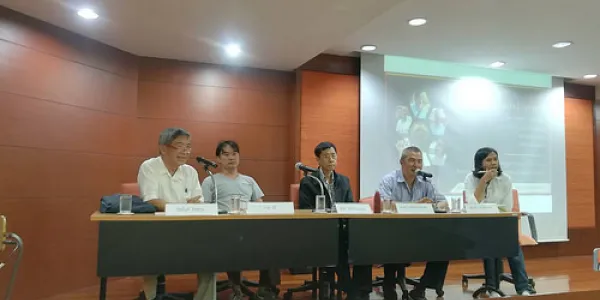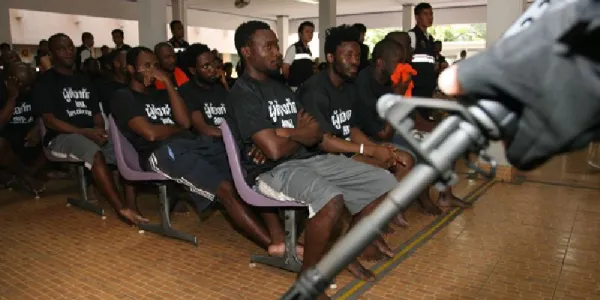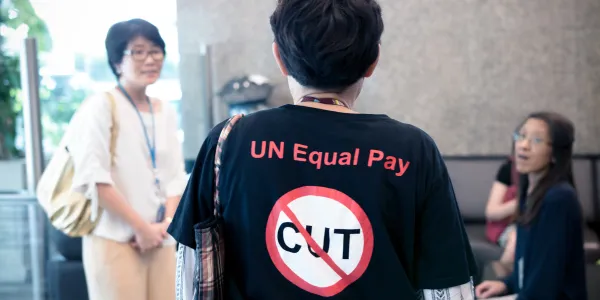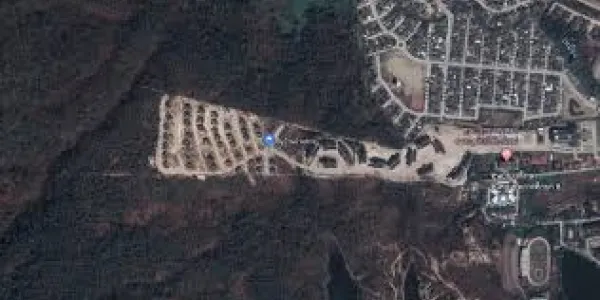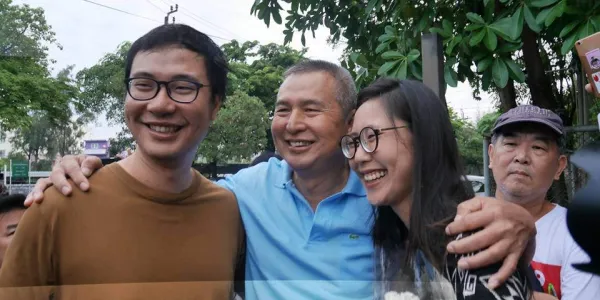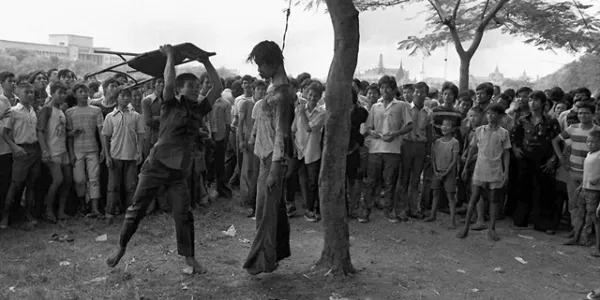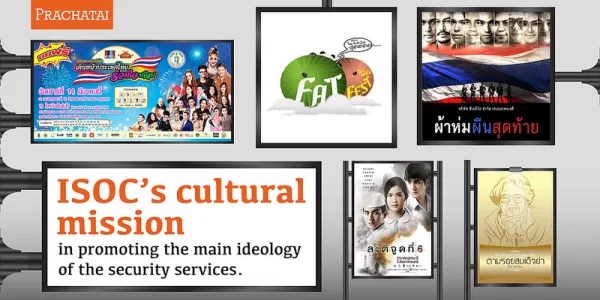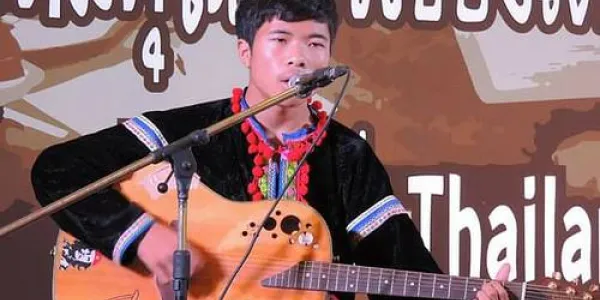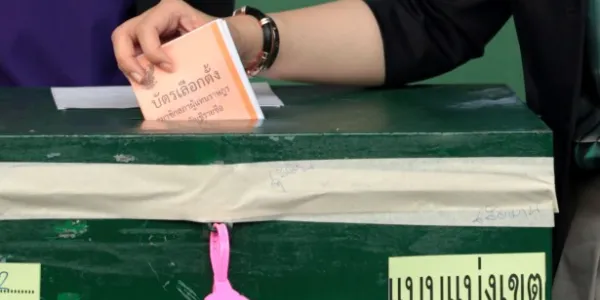<div>On 24 June 1932 at Thammasat University, Tha Prachan, the Thai Academic Network for Civil Rights (TANC) and the 24 June Democracy Group held a conference on “86 years since 1932: Branches and Fruit of Siam’s Great Revolution”</div>
<div> </div>
<div>The conference had Assoc. Prof. Chaiyan Rajchagool, Faculty of Law, Chiang Mai University; Assoc. Prof. Anusorn Unno, Dean of the Faculty of Sociology and Anthropology, Thammasat University; Rawee Siri-issaranant (Wad Rawee), writer and owner of the Shine Publishing House; Assoc. Prof.
</div>
By Adele Colbey |
<div><p>Last March, the Thai Immigration Police visited Henry’s apartment six times. Henry is a Nigerian MBA student, with a valid student visa. “They accosted me on my way to campus”, he said. “They went through my phone a couple of times during the harassment. They came into my room and searched through my wardrobes and desk drawers. They took photos of me and my room number”. According to Henry, his room was “ransacked”. Henry’s crime? He says it is simply being a black African. “To me, this is nothing less than racism and harassment.”</p></div><div> </div>
By Genevieve Glatsky |
<div>
<div>Tensions are rising at the UN office or ‘duty station’ in Bangkok over plans to slash salaries for the second time in six years.
</div></div>
By Kritsada Subpawanthanakun |
<p>The case of the housing project for judiciary officials reflects the state’s monopoly on the use of resources. The people do not have rights. How can judiciary officials stay in forests while villagers cannot? Structural injustice is rooted in the law. Academics point out that this case was a statist type of resource management that ignores the people. The case of the housing project for judiciary officials reflects state monopoly and management of resources.</p>
<p></p>
By Metta Wongwat |
<p>The 57-year-old l?se majest? convict recalled his life in jail with a smile and a laugh, even when he talked about one of his most traumatic memories -- his suicide attempt. In the early years of his imprisonment, he was overwhelmed, not by grief or despair, but anger -- the anger at the fact that his bail requests were repeatedly rejected.</p>
<p></p>
By Puangthong Pawakapan |
<div>In September 2017, I wrote a summary on 'The Enigma of the Deaths on October 6' for the Documentation of Oct 6 Project. One of the issues mentioned was the photo of a man holding a chair and using it to beat the body of a hanged victim on Sanam Luang. The photo by Neil Ulevich, which won a Pulitzer Prize in 1977, was one of the most viewed photos of the October 6th incident. The 'chair' in the man's hand has therefore become a symbol of violence. But 40 years have passed and we still do not know who he was; very few people even cared to ask who he was.
</div>
By Nutcha Tantivitayapitak |
<div>
<div>The coordinator of the Thai Netizen Network analyses the latest draft of the Cyber Security Bill, saying that the definition of “cyber” is too broad, there is a risk of offending over content affecting security, the Committee is structured to give dominant power to the security sector, and private agencies not complying with requests for data may be penalised, but state requests for data do not require any court order. </div>
<div> </div>
<div>“Cyber security is the security of general infrastructure systems, whether it’s finance, the economy, society, daily activities
</div></div>
By Nutcha Tantivitayapitak |
<div>From concerts, musicals, to movies, read ISOC’s cultural mission in their process of promoting the main ideology of the security services. </div>
<div>
</div>
By Yiamyut Sutthichaya |
<div>His lawyer and brother speak out about the difficulties in the investigation into the death, about a community in fear and about a family grievously hurt as last March 17th marked the first anniversary of a soldier shooting dead Lahu activist Chaiyaphum Pasae, accusing him of smuggling drugs.</div>
<p></p>
<div> </div>
<div>Prachatai asked people from across the political spectrum two big questions: 1) if they are going to vote for an NCPO party, 2) if they are okay with a proposed by politicians from Pheu Thai and the Democrats is that the two parties might form a coalition in the next election to prevent an ‘outsider PM’. </div>
<p></p>
<div>4 years ago, on February 2, 2014, People’s Democratic Reform Committee (PDRC) protesters forcefully shut down many polling stations in Bangkok and the South.The blockade prevented the election from being held on the same day nationwide and paved the way for the coup d'etat. After the junta took control, PDRC leaders expressed the hope that the junta would carry out this reform. In its fourth year of power, the junta has declared that elections will probably be held this year or early next year, or whenever — with no sign of the “reform before elections” that the PDRC called for so loudly.</div>
<p></p>
By Tewarit Maneechay and Yiamyut Sutthichaya |
<div>On 29 January, Ratchaburi Provincial Court will announce the verdict in the case of 4 activists and 1 Prachatai journalist who were accused of allegedly violating the Referendum Act by giving moral support to villagers in Ban Pong District, Ratchaburi Province in the case of the activists, and by reporting on the incident by the Prachatai journalist. Prachatai invites readers to review the proceedings of a case that has been going on for around a year, as well as the demands for a democratic referendum from organizations fighting for human rights and media freedom. </div>
<p></p>

